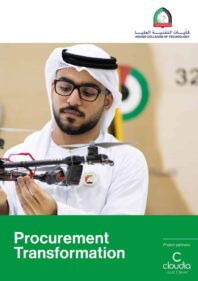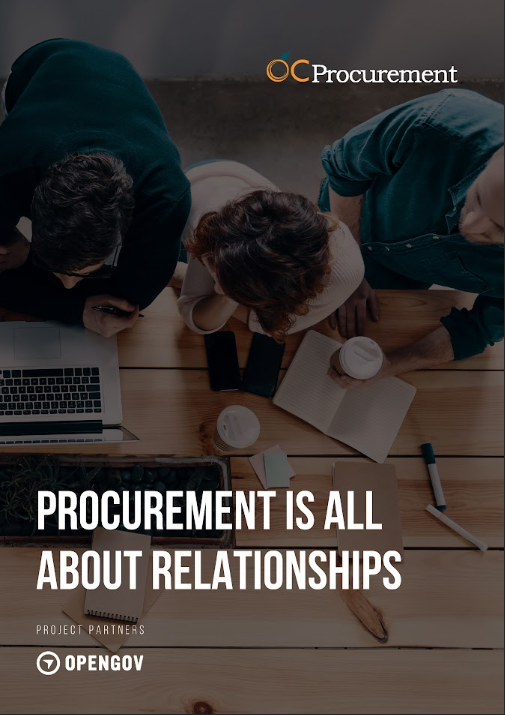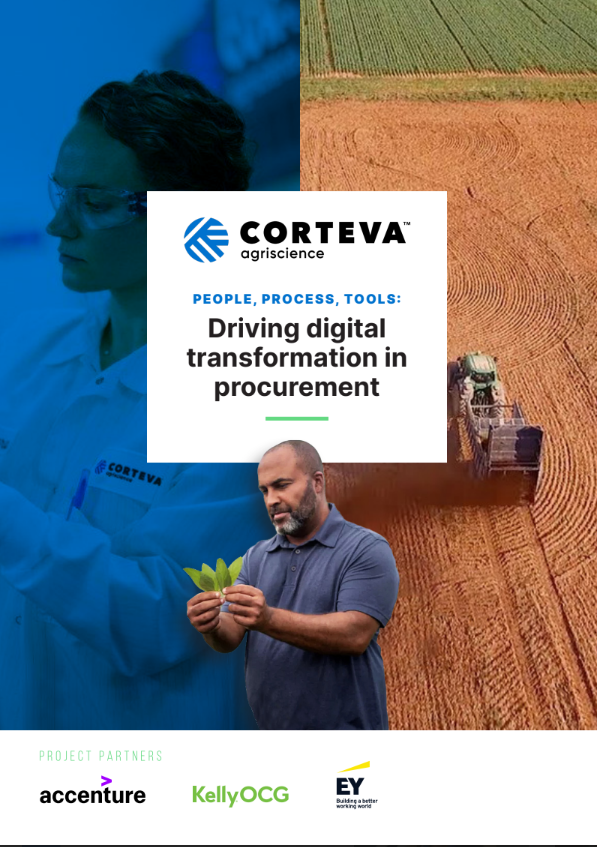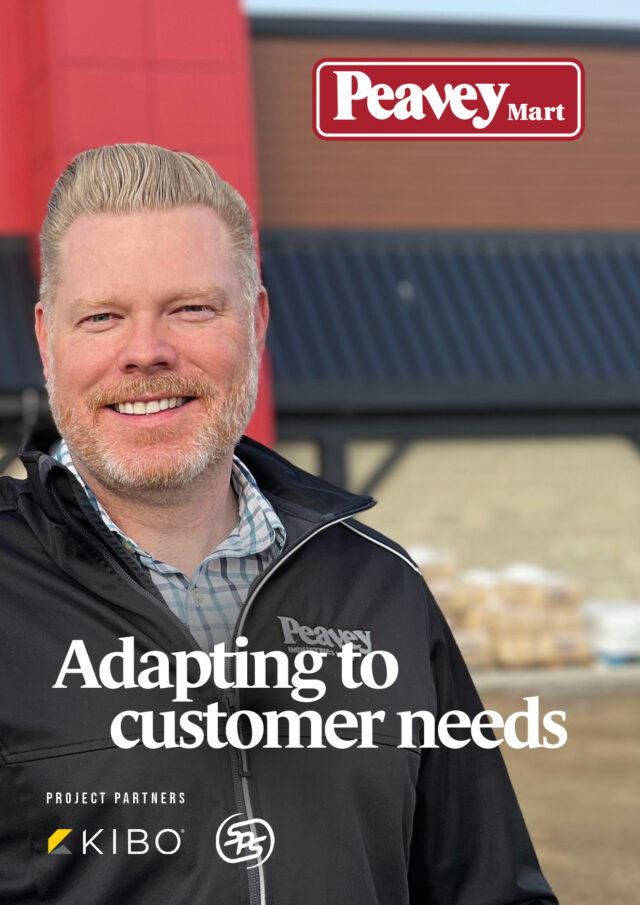The Higher Colleges of Technology, the largest applied higher education institution in the UAE, developed its transformative HCT 2.0 strategic plan (2017-2021) in line with the future aspirations and vision of the UAE’s wise leadership. Subsequently, this strategic plan evolved into HCT 4.0, in 2019, to further support the international challenges and changes brought about by the “Fourth Industrial Revolution.”
In tandem with HCT 2.0, 2018 saw HCT set itself a strategic mission to bring upon a “revolution in procurement”, led by Mahmoud Salem Al Alawi, Director of Procurement and Contracts. When we spoke in 2019, HCT was already 30% of the way through this bold mission, achieved through its Annual Procurement Plan in the first quarter. As 2020 drew to a close it proved to be a pivotal year in defining the future of HCT’s procurement function.
As we speak in 2021, the world has changed dramatically, thanks to the further digitalisation of procurement and the seismic ramifications of the COVID-19 pandemic. So what has this done for the procurement revolution within HCT?
“The strategy that we put in place has really started to show results,” says Al Alawi. “The pandemic accelerated and helped achieve our strategy, especially when we talk about digital transformation. When we started we had the seeds of a strategy for the department. Today, we have a robust and improved strategy. We have a long-term strategy that’s aligned with our organization and which is linked to the UAE government strategy, especially for the education sector. We are further aligning ourselves with the HCT 4.0 strategy, where we have created Procurement 4.0, as well. We now have a procurement strategy that’s concentrating on people and the organization.”
Read our 2019 interview with Mahmoud below: HCT:
Elsewhere, HCT has invested in training its employees and hiring qualified human capital to create a veracious competency framework. These trainings are delivered through a partnership with the Chartered Institute for Procurement & Supply (CIPS), where HCT continues to leverage the global expertise of the organisation in order to achieve a best-in-class procurement function.
“We talked about our procurement processes back in 2019 and how we were looking to shorten the process. Well, today I can confirm that we have completely streamlined and re-engineered the whole process, down from two weeks to being able to complete and close a process within one day,” beams Al Alawi.
“This isn’t just transformation, this is revolution.”
This revolution of procurement extends to HCT’s supplier relationships, something that proved particularly important throughout the COVID-19 pandemic. Here, through enriched supplier relationships, HCT has been able to provide full support to its vendors during some of the most challenging moments, over the last 12 months. As Al Alawi describes, ”they are our partners in success and partners in our journey”.
From the start of the pandemic, HCT provided cash flow for its vendors and shortened, or reduced, payment terms; extending the same terms for any SMEs with which it worked. For service-based vendors, HCT also established special agreements, whereby it could match the salaries and benefits of their employees, so as to ensure the employees’ jobs were secure during difficult and uncertain times.
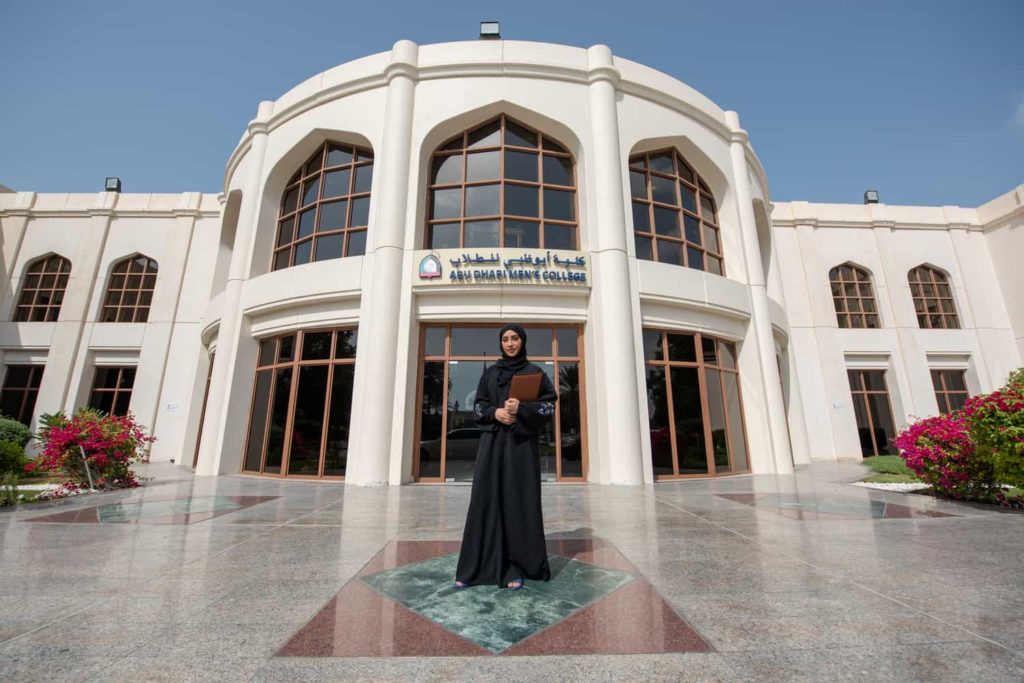
“We never used force majeure. We preferred to use business continuity,” says Al Alawi. “So, we helped our vendors and the business with us by supporting them in shipments, revising the deliveries and revising the service scope to be aligned with the situation during the pandemic. We came up with good results. We have partners who are supporting us more than ever before.”
HCT has not only witnessed a revolution in its procurement relationships with external vendors, but also in its relationships with internal stakeholders. Procurement, as a function, is evolving all over the world and, at HCT, the Procurement Department has grown significantly, developing and maturing exponentially to where it is recognised as a vital strategic function. Most notably for Al Alawi, a man who has always recognised and valued procurements’ true worth, he is confidently assured that the business sector understands and appreciates just how important procurement is to the institution’s optimal operation.
“We also understand the business requirements more,” he says. “Believe it or not, in the pandemic, we spent more time with them. Everyone was working from home and so we had more time to talk, to understand their requirements and to really put ourselves in their shoes. We showed them the challenges and the procurement process, so that they understand what they should expect as being part of our process when they place a request with us.”
“It’s all about the engagement with our internal stakeholders to make sure that they are aligned with the process and to make their lives easier when they create any request.”
Another key area of development for both HCT, and indeed procurement, is digitalisation. In 2019, Al Alawi spoke of the need for a new ERP system and dashboard. As HCT looked to increasingly focus on excellence, performance management through KPIs proved key. Here, the COVID-19 pandemic actually helped accelerate this conversation.
“We work in a very dynamic organization and a very dynamic country. The decisions here can be made within a minute. Leadership has a very clear strategy about where they want to go, where they want to be and so the implementation should be done with no time to spare, with good quality. It’s a big challenge for us, as procurement, to match this triangle – the quality, time, and to give the proper cost,” explains Al Alawi.
“When the pandemic hit, management needed us to be ready within a week, to work from home and to support the whole business 100%, without any disruption.”
Naturally, the Procurement Department found itself receiving an extensive list of requirements from internal business units, essential to maintain a seamless continuity of operations. It needed an ERP system, but doing so within a single week is a challenge that even the greatest procurement leaders will admit is practically impossible. But that wasn’t part of Al Alawi, and his team’s, lexicon. Al Alawi and his team were able to source temporary, alternative solutions to support a digital transformation remotely. Even so, Al Alawi knew this was a short term fix.
“Very early on we began customizing our portal to receive, for example, the technical and commercial pieces through an online portal,” he says. “For companies who had ERPs, it was easier mainly because the system was already there and they could use it. But for us, we were still handling this part of the process manually until the day they called for the lockdown. So, within a week, we came up with the solution. We worked hard with IT, day and night to get this part done because this was the most critical part.”
Once this new solution was in place, the work was only just beginning for HCT, as it needed an ERP system that could handle both internal and external sourcing with vendors. Once again, time was everything and so it needed to find a solution with a quick implementation period and at a price that was fair. It is here where HCT entered into a key partnership with Cloudia.
Initially, this system was only required for sourcing and commercial evaluation. HCT’s biggest concern was centred around tenders, and commercial and technical evaluations within the system itself to maintain control of the process.
“We told Cloudia what our requirements were and they were more than excellent with us in implementing the system. Within two weeks, to a month, we had the system live with the basic functions that we needed,” he says. “But once we went through the system, we pushed it to do more.”
This involved solving challenges around its document management systems and, by collaborating with another vendor, HCT was able to create an E-Procurement Committee (EPC). By digitalising each step of the process (sequence, quality control, procurement director and procurement committee secretary) it made for quicker, and more effective, approvals and move towards the authorized signatory stage before final closure.
“I’m very proud to say that today, we have the only solution in the UAE government that has end-to-end approval for the Procurement Committee,” beams Al Alawi. “The Procurement Committee is fully automated.”
“This database is something that we are very proud of and together with the ERP system from Cloudia, our lives are now easier,” he adds.
This acceleration of digital procurement, together with the key relationship with Cloudia, has done an incredible amount to add further cachet to what Al Alawi and the Procurement department are doing for HCT.
Al Alawi continues: “We are very lucky to have Cloudia with us as a partner. After we finished the sourcing, we expanded with them. So, now we have the Annual Procurement Plan completed on the system and instead of planning annually, now we have a three year plan.”

“We can see the project, and the bigger picture. Through a solution, called the Big Data solution, we link Cloudia with our PR and PO system and our document management system to create a holistic system, which operates as a more effective ERP system because now we have everything that we want customized, based on our requirements.”
One could be forgiven for thinking that, due to the incredible changes successfully implemented within HCT, the last few years have been completely hurdle-free. However, Al Alawi is the first to admit that this has not been the easiest of journeys and that procurement transformations are far too complex to expect a simple journey from A to B. The pandemic has proven to be one of the biggest unforeseen challenges in many years; the impact of which we are still experiencing to this day. While it has presented great opportunities for procurement to step into the spotlight and mitigate disruption, the challenges it has thrown up cannot go unnoticed.
As Al Alawi has mentioned, HCT had to work in a different way with its vendors and suppliers, providing cash support in order to maintain business continuity and significantly altering its procurement terms to allow for greater flexibility. The challenges were in the physical nature of procurement and tenders. Due to quarantines and travel restrictions, the tendering process was significantly impacted, leading to delays and businesses having to shut down entirely.
“Once again, we utilized our good relationships to work with our end-users to find new vendors,” he says. “Rather than accepting that we are going to be late in delivering their requirements and we don’t provide what they need on time, we work with them to develop a new list that we could call Plan B at that time. Now it’s our Plan A.”
“We came up with a new process to qualify the vendors from the beginning, where we float a tender and once we do the technical evaluation we will consider that technical evaluation as part of the vendor’s profile, as a pre-qualification and evaluation for the vendor during the tender,’ he says.
“We built a new database of new, pre-qualified vendors, saving both our time and the end-users’ time. Instead of a problem, we came up with an innovative solution that’s now our plan A. We do this process with all our tenders. It’s now the norm instead of a solution for a problem.”
Once significant changes are made, and successes achieved, on the procurement journey, it is usually the stage where an organization stops and asks: “What next?” As Alawi has noted, with a new ERP system the team is already making strides on its next three-year plan for procurement to further align with the HCT 4.0 strategy. So what does the immediate future look like for HCT?
“We need to go further. So we have reduced the cycle from 120 days to 66 days for the public tender. Today the public tender is 66 days, we can get it down from anywhere between 40 to 50 days, and even less. With the system we have control,” he says.
“It’s about making procurement much easier for the end user. We want to make use of a solution, with Cloudia, where users can find their requirements ‘on the shelf’ through a digital store. They purchase their requirements and, through a seamless experience, it arrives in their canvas or their department, without going through the step-by-step procurement process. Just like the Amazon experience.”
Sustainability in the procurement function, and wider supply chain, is an immediate and growing concern for all procurement professionals and organizations, and it’s certainly a key topic for HCT. Sustainable best practice is a topic that hits close to home for Al Alawi, as he takes both a personal and professional interest in exploring what more can be done to leave a lasting, positive impact on the world through procurement and supply chain.
As an MCIPS – CMILT (Chartered) Sustainable Procurement Ambassador, Al Alawi is in a position of great influence to help drive sustainable best practices across HCT.
“We’re working on creating a truly sustainable procurement function and process. We’ve already been working closely with our Health and Safety department, as well as aiming to achieve ISO and sustainable procurement certification in the near future,” he says.
“We are constantly exploring how we can look at resourcing and procuring wisely and how we can procure green supplies from vendors to make sure that we are helping the world in so many ways. It’s in our agenda and it’s going to be a key part of the future transformation for HCT.”
As the largest applied higher education institution in the UAE, HCT’s successful procurement transformation has a larger impact on the wider region. As Al Alawi has noted already, the work that HCT has done around business continuity throughout the pandemic has enabled SMEs and local industry to thrive in a time where force majeure was the more favourable option for many procurement professionals all over the world. The organisation’s key partnership with CIPS is another pivotal element in the procurement story of the Middle East, where HCT uses CIPS to benchmark against global best practices. Consequently, it has already been recognised as an influential procurement model in itself.
HCT recently achieved the CIPS Ethical Procurement and Supply certificate and were recognised at the CIPS Middle East and North Africa awards where we received the 2021 Best response to Supply Chain Resilience Award. The organisation was among nine other competitors from the region, including Turkey, Kuwait, Bahrain, Saudi Arabia, and the UAE – a testament to its excellent work with its vendors during the pandemic.
But, as with HCT 4.0 and Procurement 4.0 strategies, the journey doesn’t end there. To quote Al Alawi; this has been a journey or revolution, not simply transformation and while these accolades are richly deserved the challenge now is to take procurement further.
“Now we are working with CIPS to explore how we benchmark ourselves internationally,” says Al Alawi. “We are participating in the CIPS Excellence in Procurement Awards – a real truly global benchmark.”
But it’s not all about the accolades. “Of course we want to get the award, but we want to position ourselves internationally. We want to build our function and to build our standards to be at the very best international standards,” Al Alawi stresses.
“So, when we deal with vendors, or with suppliers from Europe, North America, Asia or from Africa, our standards are leading-edge and up there with the best standards around the world, not only within the UAE or within the government. This, for me, will be a true sign of what procurement can be, and what it is on the road to becoming for HCT.”
